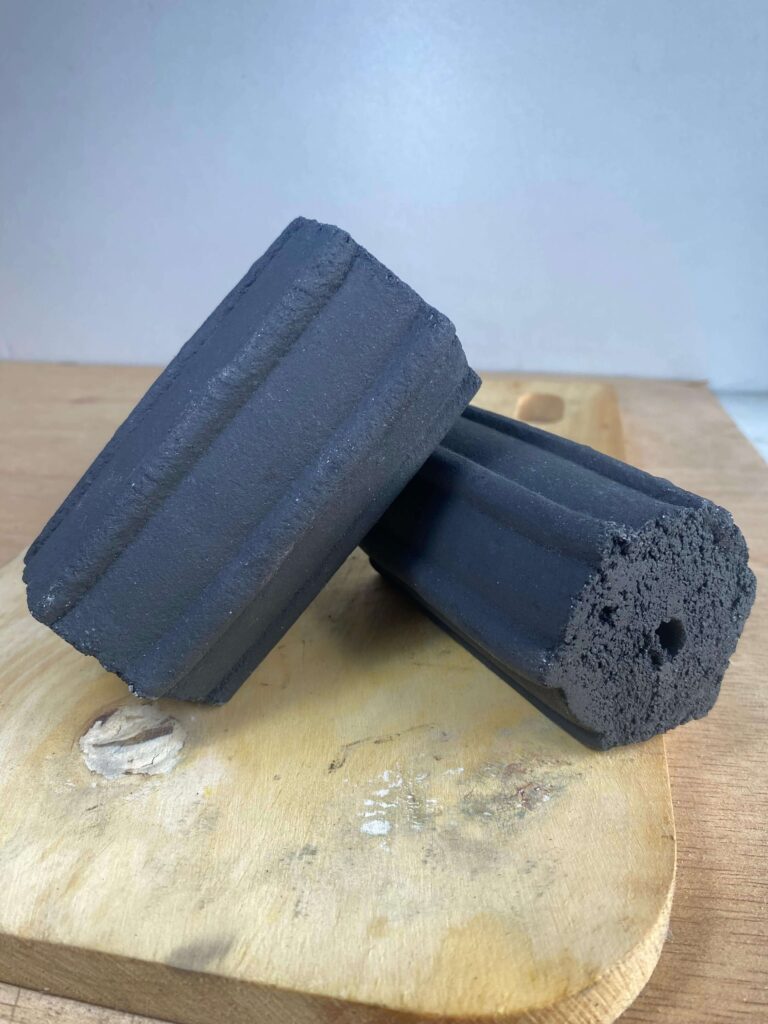Charcoal briquettes have become a popular and sustainable energy source across the globe. Whether for cooking, heating, or industrial applications, these compact fuel sources offer efficiency, environmental benefits, and cost-effectiveness. In this article, we explore why charcoal briquettes are an essential alternative to traditional fuels and their role in promoting sustainable energy practices.

1. What Are Charcoal Briquettes?
See more : Coconut Charcoal Briquettes Production Process
Charcoal briquettes are compact blocks of combustible material made primarily from biomass or organic waste. Unlike traditional lump charcoal, which is directly made from charred wood, briquettes are engineered to achieve consistent size, shape, and performance. Key ingredients include:
- Charcoal Fines: The primary source of carbon, derived from wood or coconut shells.
- Binders: Natural substances like starch or clay that hold the briquette together.
- Fillers: Materials like sawdust or limestone that enhance combustion and reduce costs.
The production process involves crushing raw materials, mixing them with binders, and compressing them into uniform shapes. After being shaped, the briquettes undergo a drying process to reduce moisture content, ensuring optimal burning efficiency.
2. Why Choose Charcoal Briquettes Over Other Fuels?
Charcoal briquettes stand out as a superior choice compared to other traditional and modern fuel sources. Here are key reasons:
Consistent Performance
Briquettes provide uniform heat and a steady burn, unlike irregular lump charcoal or wood logs, which can vary in size and density.
Clean Burning
Compared to wood or coal, briquettes produce less smoke and fewer harmful emissions, making them safer for both indoor and outdoor use.
Sustainability
Many briquettes are made from renewable materials like coconut shells or agricultural waste, reducing dependency on non-renewable fossil fuels.
Affordability
Their long burn time and efficient energy output make briquettes a cost-effective choice for households and industries alike.
3. Advantages of Using Charcoal Briquettes
Offer numerous benefits that make them a preferred fuel option:
Longer Burn Time
Briquettes burn more slowly compared to traditional fuels, providing consistent heat for extended periods. This is particularly beneficial for grilling and industrial processes.
High Energy Output
With a high calorific value, briquettes deliver more energy per unit weight than wood, ensuring better performance.
Uniform Shape and Size
Their standardized design ensures even burning, reducing the need for frequent adjustments during use.
Low Ash Residue
High-quality briquettes leave minimal ash after combustion, simplifying cleanup and maintenance.
Convenient Storage and Transport
Their compact size and low moisture content make briquettes easy to store and transport, even in bulk.
4. Environmental Benefits of Charcoal Briquettes
One of the most significant advantages of is their positive impact on the environment. Here’s how they contribute to sustainability:
Waste Utilization
Briquettes are often made from agricultural and industrial byproducts, such as coconut shells, sawdust, and sugarcane bagasse. This repurposing reduces waste and supports a circular economy.
Reduced Deforestation
Unlike lump charcoal, which requires direct harvesting of wood, briquettes rely on waste materials, helping to conserve forests and natural ecosystems.
Lower Carbon Footprint
Briquettes produce fewer greenhouse gas emissions than coal or traditional firewood, aligning with global goals to combat climate change.
Cleaner Air Quality
By generating less smoke and harmful particulates, briquettes help improve air quality, especially in urban and indoor settings.
5. Applications of Charcoal Briquettes
Charcoal briquettes offer versatile applications across diverse sectors, including:
Household Cooking
Briquettes are a popular choice for grilling, barbecuing, and cooking, thanks to their consistent heat and ease of use.
Commercial Kitchens
Restaurants and food vendors use briquettes to prepare meals efficiently while maintaining flavor and quality.
Industrial Heating
Industries requiring high-temperature processes, such as metallurgy and ceramics, rely on briquettes for their consistent heat output.
Power Generation
Briquettes are increasingly being used as a renewable energy source in biomass power plants.
Recreational Use
They’re a go-to fuel for outdoor activities, including camping and picnics, due to their portability and reliability.
6. The Growing Market for Charcoal Briquettes
Global demand for charcoal has experienced remarkable growth in recent years.Factors driving this trend include:
Rising Environmental Awareness
Consumers and industries are shifting toward eco-friendly energy sources, creating a growing market for briquettes.
Increasing Urbanization
As more people move to urban areas, the demand for convenient and clean cooking fuels like briquettes has surged.
Export Opportunities
Countries producing biomass-based briquettes, such as those made from coconut shells, have a lucrative export market in Europe, North America, and Asia.
Supportive Government Policies
Many governments promote renewable energy initiatives, providing subsidies and incentives for briquette production and use.
7. Why Are Superior
Among various types of briquettes, those made from coconut shells stand out due to their exceptional properties:
High Energy Efficiency
Coconut charcoal briquettes have a higher calorific value, ensuring prolonged and efficient heat generation.
Minimal Smoke and Odor
These briquettes produce little to no smoke, making them ideal for indoor and outdoor cooking.
Renewable and Sustainable
Crafted from coconut shells, a byproduct of the coconut industry, these briquettes promote waste reduction and support sustainable practices.
Chemical-Free
Coconut charcoal briquettes are free from chemical additives, providing a natural and safe option for cooking.
Premium Quality
Their dense structure and low ash content make them a premium choice for both household and industrial applications.
Conclusion
Charcoal briquettes, especially those made from coconut shells, are a sustainable, efficient, and versatile energy solution. Their environmental benefits, cost-effectiveness, and wide-ranging applications make them a preferred choice for households, businesses, and industries. The advantages of briquette charcoal, including their long burn time, high energy output, and minimal environmental impact, further highlight their importance in the transition to sustainable energy sources. As the world moves toward greener energy solutions, the demand for charcoal briquettes is set to rise, making them an essential component of a sustainable future. Start using charcoal briquettes for a greener future.
